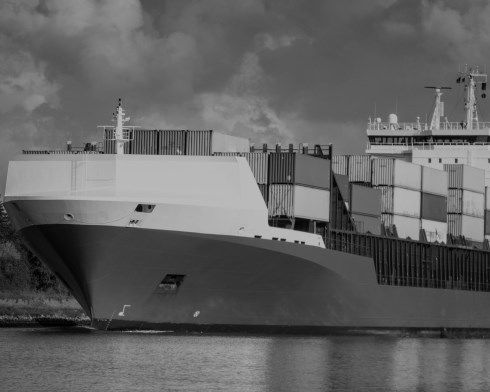Pursuant to Article 20 of the Turkish Environmental Code no. 1983 (the “Code”), fines are imposed on vessels for causing pollution in Turkish waters through discharge of petroleum products, dirty ballast, garbage and sewage into the sea. The quantum of the fines are determined by a tariff that is revised annually. The tariff below contains the updated rates for the year 2018 and have entered into force on 1 January 2018.
1. Petrol and petroleum products discharged by tankers:
| Up to 1,000 (inclusive) gross tons (GT) | TRY 97.20 per GT (up from TRY 84.91 per GT) |
| Between 1,000 and 5,000 (inclusive) GT | An additional TRY 24.24 per GT (up from TRY 21.18 per GT) |
| Over 5,000 GT | An additional TRY 2.32 per GT (up from TRY 2.03 per GT) |
2. Dirty ballast discharged by tankers:
| Up to 1,000 (inclusive) GT | TRY 72.88 per GT (up from TRY 63.67 per GT) |
| Between 1,000 and 5,000 (inclusive) GT | An additional TRY 14.54 (up from TRY 12.70 per GT) |
| Over 5,000 GT | An additional TRY 2.32 per GT (up from TRY 2.03 per GT) |
3. Petrol/petroleum products and dirty ballast discharged by vessels or any other marine vehicles:
| Up to 1,000 (inclusive) GT | TRY 48.58 per GT (up from TRY 42.44 per GT) |
| Between 1,000 and 5,000 (inclusive) GT | An additional TRY 9.67 per GT (up from TRY 8.45 per GT) |
| Over 5,000 GT | An additional TRY 2.32 per GT (up from TRY 2.03 per GT) |
4. Garbage and sewage discharged by vessels or any other marine vehicles:
| Up to 1,000 (inclusive) GT | TRY 24.24 per GT (up from TRY 21.18 per GT) |
| Between 1,000 and 5,000 (inclusive) GT | An additional TRY 4.78 per GT (up from TRY 4.18 per GT) |
| Over 5,000 GT | An additional TRY 0.90 per GT (up from TRY 0.79 per GT) |
It should be noted that vessels discharging hazardous substances are fined 10 times the amounts indicated for petroleum products in tariff 1 and 3 above. Vessels which pollute the environment repeatedly also face heavier fines: first recurrence within 3 years will lead to the doubling of the fine whereas second and further recurrences will lead to a 200% increase. On the other hand, if the vessel manages to remove the pollution by her own means, only 1/3 of the above rates are imposed.
Separate from the administrative measures specified above, authorities that detect a pollution incident are under an obligation to report the incident to the public prosecutor immediately. Subsequently, the public prosecutor will commence a criminal investigation into the incident which is usually followed by criminal proceedings brought against the master of the vessel.
The fines issued by the authorities due to an alleged pollution must be paid or sufficient and suitable security must be put up immediately and in full. Otherwise the vessel is arrested. If the fine is paid within 30 days, a 1/4 discount becomes applicable.
Objections against fines can be filed with the Administrative Court within 30 days of notification. It should be taken into consideration that an objection does not stop the collection of the fine. Therefore, the usually followed course of action is to pay the fine within 30 days benefitting from the 1/4 discount and then filing an objection with the Administrative Court if there are sufficient grounds to do so. We must point out that challenging pollution fines may be difficult because the applicable legislation provides for a caveat which, in practice, allows the authorities to impose fines without verifying the existence of the pollution with sufficient evidence.
In addition to the administrative pollution fines set out above and in line with a trend of increasing the authority of Harbour Masters, a separate type of fine imposable by the Harbour Master has been introduced in 8 April 2017. Accordingly, the Harbour Master can impose a fine of up to TRY 5,000,000 for pollution caused by a vessel that is sailing in Turkish territorial waters in circumstances that require emergency intervention due to collisions, breakages, fires, explosions or similar incidents. This type of fine is different from the tariff above based on tonnage since the fine to be imposed by Harbour Masters is not subject to a tariff and the Harbour Master has total discretion in determining the quantum of the fine up to the TRY 5,000,000 limit.
As evidenced by the increased extent of the Harbour Masters’ powers, in recent years we have seen stricter measures employed by the authorities in the application of environmental protection measures against pollution. At ErsoyBilgehan, with our vast experience in environmental law and pollution incidents, we advise and represent our clients in objections against administrative fines as well as in criminal proceedings in relation to the same.
Please do not hesitate to contact us if you have any queries.



